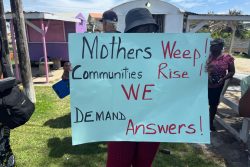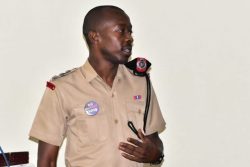MANAGUA, Nicaragua — Venezuelan-backed President Daniel Ortega has only 36 per cent of the vote in the polls, and is facing growing accusations of abuse of power and corruption. But in a three-day visit here, I didn’t find anybody who doubts that he will easily win the Nov 6 elections.
Ortega will face a fragmented opposition of four candidates, led by former President Arnoldo Aleman and radio station magnate Fabio Gadea, with 23 per cent and 17 per cent of voters’ support respectively. Under the rules crafted by Ortega-controlled electoral bodies, Ortega could win the elections with only 35 per cent of the vote.
Ortega, 65, the former Sandinista guerrilla commander who ruled for a decade after the 1979 Sandinista revolution and was elected back to power in 2006, is widely believed to have violated the constitution in recent months by resorting to legal shenanigans to run for a second consecutive term.
But after obtaining controversial legal cover from a government-controlled electoral tribunal, and awash with cash from Venezuelan President Hugo Chávez — who is estimated to fork out about $500 million a year to Nicaragua — and high world prices for Nicaragua’s coffee exports, Ortega looks invincible.
The economy grew by 4.5 per cent last year, and is expected to grow by at least 3 per cent this year. That, and Chavez’s money, much of which comes in discretionary funds not included in the government budget, gives Ortega a formidable campaign chest. In the capital, where power outages were common, there are lights everywhere, and Christmas trees in public squares are lit year-round.
“Right now, I don’t see anybody who could challenge him in the polls,” says Carlos Fernando Chamorro, a leading TV and print journalist who publishes the political weekly Confidencial. “The opposition is weak and divided.”
But it’s more than just that. To my surprise, the business community seems relieved with Ortega, who unlike his benefactor Chávez, has not yet nationalized or confiscated major private companies.
 Many business people I talked to emphasized that, despite his fiery rhetoric against capitalism, the business community, independent media and the United States, Ortega has maintained a semi-independent central bank and accepts pro-market economic conditions set by the International Monetary Fund. He hasn’t turned out to be as bad as we feared, one business owner told me.
Many business people I talked to emphasized that, despite his fiery rhetoric against capitalism, the business community, independent media and the United States, Ortega has maintained a semi-independent central bank and accepts pro-market economic conditions set by the International Monetary Fund. He hasn’t turned out to be as bad as we feared, one business owner told me.
Has Nicaragua’s business community sold out to one of Latin America’s most radical populist leaders? I asked Arturo Cruz, who served in a previous Ortega presidency as ambassador to Washington and now is a professor at the INCAE business school.
Cruz rejected the premise of my question, arguing — only half-jokingly — that Ortega’s rule could be defined as “responsible populism.”
“Ortega has managed to rule with both Chávez and the IMF,” Cruz said. “It’s a two-track economy; he uses the Chávez money to subsidize electricity, transportation and give out housing materials for the poor, and abides by the IMF rules in order to keep the macro-economy more or less sound. And, so far, it has worked.”
Among those who are worried about the future is retired Gen Humberto Ortega, the President’s brother and once the head of the Sandinista revolutionary armed forces. In a lengthy interview, he suggested that he doesn’t approve of his brother’s efforts to co-opt institutions and grab absolute power.
“We need a national agreement committing all sides to the rule of law,” Humberto Ortega told me. “If Daniel doesn’t do that immediately after the election, there will be anarchy, and this country will become ungovernable.”
My opinion: The Ortega revolution, like others, has come full circle, and is increasingly looking like the Somoza dictatorship it toppled in 1979. It is a one-man rule, increasingly authoritarian rife with corruption that is benefiting from high world commodity prices and a foreign benefactor.
Is this something that will provide stability to Nicaragua, and help reduce poverty? Of course not. Just as everybody here seems sure that Ortega will win the elections, everybody also seems sure that the Ortega government is living from day to day. If Chávez fell, or Venezuela stopped sending subsidized oil, or the IMF stopped making emergency loans, or commodity prices fell, Ortega’s government would collapse, they say.
It’s a country living from day to day, where everybody — Ortega and the opposition — thinks short-term, and for himself. Sooner or later, Nicaragua will have to make a national agreement to respect the rule of law, or it will never emerge from poverty and despair.
© The Miami Herald, 2011. Distributed by Knight Ridder/Tribune Media Services.









